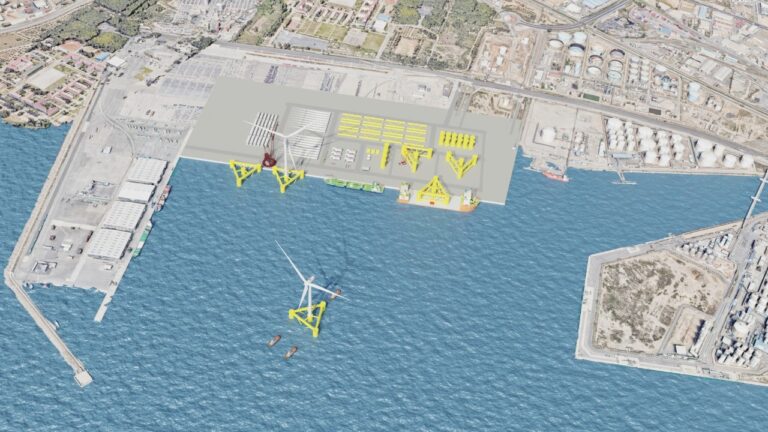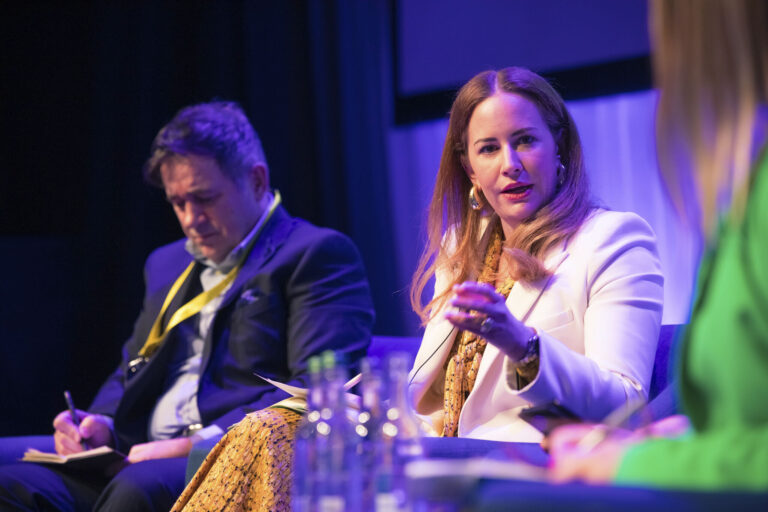The I Marine Wind Congress in Bilbao has been the perfect stage for offshore wind energy in Spain, a sector with high potential in our country but still far from the strategic relevance it already holds in many parts of the world, such as the rest of Europe, America, Oceania, and East Asia. We lag behind Europe in developing a regulatory framework for offshore wind, and our potential as a country capable of leading the sector internationally—thanks to our knowledge, talent, technology, and natural resources—obliges us to make up for lost ground.
The approval of the Maritime Spatial Planning Plans (POEM) and the legal framework that will define the criteria for upcoming auctions is getting closer. This will mark a turning point for our sector. The long-awaited legislation is an opportunity to tackle one of the industry’s most significant challenges: placing the territory at the center of development.
The legal framework defining auction criteria must positively evaluate the efforts of developers to integrate projects into the territory and generate public consensus on the sector’s importance. Through continuous dialogue and active listening, we must work toward implementing wind farms that earn public approval and provide a return to local communities. Otherwise, we risk repeating past mistakes.
The Unfinished Business of Projects in Spain
Undoubtedly, large-scale projects developed in Spain are crucial for economic growth and the well-being of the country’s strategic sectors. However, it is also undeniable that, on more than one occasion, these projects have not received the level of public support they would have hoped for—both from the general public and from the territories where they were located.
The very nature of these infrastructures raises understandable concerns among local residents and stakeholders, often rooted in a lack of information and transparency. Early dialogue and engagement with the local community can help ensure the viability of projects. Otherwise, there is a risk of generating social opposition that could lead to project delays, suspensions, or even cancellations.
A Paradigm Shift in Offshore Wind
To make this paradigm shift a reality, legislation must acknowledge this need and establish a clear path toward a new model for strategic infrastructure that prioritizes local communities while ensuring a balance between technical feasibility and public acceptance.
The criteria for offshore wind auctions should require developers to engage in early, transparent, and effective dialogue with the communities where projects will be located. This dialogue must lead to tangible outcomes, such as ensuring public access to project information, encouraging citizen participation in project investment, and securing a return for the local community. Legislation should reward developers who contribute to research on compatibility of uses, ecosystem impact, and technological development while also prioritizing projects with a high level of maturity. Only through this holistic vision of offshore wind—as a sector committed to both the environment and local communities—can we successfully implement long-lasting, high-quality projects.
Developers play a key role in this equation. Our projects must be accompanied by careful planning that includes all local stakeholders and places them at the core—informing them about the project, listening to their perspectives, and ultimately improving project design to ensure its success. It is about listening, understanding, and engaging in dialogue to achieve a common goal: installing infrastructure that drives national progress while ensuring sustainable marine use and delivering positive returns for local communities.



